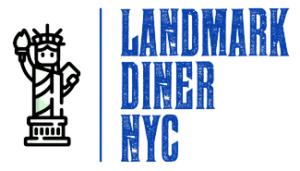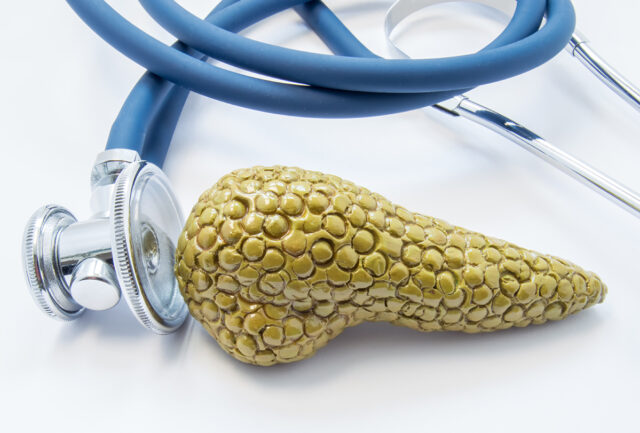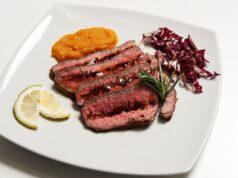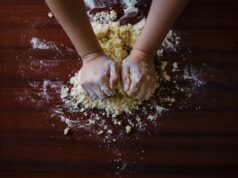Pancreatitis is a serious condition that causes inflammation of the pancreas. It can be caused by a number of factors, including alcohol consumption, infection, and pancreatic cancer. Patients with this condition are often NPO (nothing by mouth) until they recover from their symptoms.
Acute pancreatitis is a condition that causes severe pain in the abdomen, back, and chest. The acute pancreatitis guidelines 2023 are used to determine when patients can eat again with their pancreatitis.
The standard treatment for acute pancreatitis is to follow a NPO diet until the pain and nausea subside. This dogma is given in response to concerns that eating would increase pancreatic enzyme secretion in a pancreas that is already inflamed or damaged.
As a result, why do we provide fluids to those who have pancreatitis?
Fluid therapy’s main goal is to minimize or prevent pancreatic necrosis. Any patient with AP has a chance of developing severe symptoms. Patients with mild interstitial pancreatitis are often detained in the emergency department for monitoring before being released after their pain has subsided.
Is it possible to drink water if you have pancreatitis? Increase your fluid intake. Dehydration is a risk with pancreatitis, so drink plenty of fluids throughout the day. Keeping a water bottle or glass with you may be beneficial.
Is fasting also beneficial for pancreatitis?
A diabetic pancreas may benefit from a fasting diet. According to BBC News, “the pancreas may be stimulated to rebuild itself via a kind of fasting diet.” In mice, researchers discovered that a low-calorie diet may benefit people with type 1 and type 2 diabetes.
What can a patient with acute pancreatitis expect from nursing care?
Their suggestions for care for these patients are as follows: – Provide analgesia on a frequent basis to ensure comfort. Antiemetics may be required to manage nausea and vomiting; – Correct hypovolaemia using recommended intravenous fluids and other products, and keep the patient properly hydrated.
Answers to Related Questions
When you have acute pancreatitis, what foods should you avoid?
What foods should you avoid if you have pancreatitis?
- a kind of red meat
- organ meats are delicacies.
- foods that have been fried
- potato chips with fries
- mayonnaise.
- butter and margarine
- dairy products that are high in fat.
- Added sugars in pastries and desserts.
What is the best way to care for someone who has pancreatitis?
Pancreatitis is a disease that affects the pancreas.
- a stay in the hospital to treat dehydration using intravenous (IV) fluids and, if possible, oral fluids
- If you have a pancreatic infection, you will be given pain medication and antibiotics by orally or via an IV.
- If you can’t eat, you can get nourishment via a feeding tube or IV.
What is the best pancreatitis antibiotic?
Imipenem 3 500 mg/day i.v. for 14 days is the antibiotic indicated. Ciprofloxacin 2 400 mg/day i.v. combined with Metronidazole 3 500 mg/day for 14 days is also a possibility.
What is the most frequent acute pancreatitis complication?
Pseudocysts, a gathering of pancreatic fluids outside of the usual limits of the ductal system, are the most frequent consequence of acute pancreatitis (occurring in around 25% of patients, particularly those with alcoholic chronic pancreatitis) (Figure 23A). The majority of pseudocysts dissolve on their own.
What is the most effective way to treat acute pancreatitis?
Acute Pancreatitis Treatment
- Fluids. Adequate early fluid resuscitation, particularly within the first 24 hours after start, is one of the main treatments for acute pancreatitis.
- Nutritional Assistance.
- Controlling the pain.
- Underlying Problems are Addressed.
- Endoscopic Retrograde Cholangiopancreatography is a kind of endoscopic retrograde cholangiopancreatography that (ERCP)
- Antioxidant treatments
Is it possible to recover from necrotizing pancreatitis?
Necrotizing pancreatitis may lead to infection or sepsis if left untreated. This may result in organ damage that is life-threatening. The condition known as necrotizing pancreatitis is highly curable. The pancreatitis itself is treated first, followed by the dead or diseased tissue.
Is pancreatitis a condition that necessitates hospitalization?
Treatment generally requires at least a few days in the hospital. Mild pancreatitis necessitates a brief stay in the hospital. 11. Severe Pancreatitis: Severe pancreatitis may cause life-threatening consequences, such as damage to the heart, lungs, and kidneys.
Is pancreatitis a severe condition?
Pancreatitis comes in a variety of forms.
It may be anything from a little annoyance to a serious, life-threatening disease. After receiving the proper therapy, the majority of individuals with acute pancreatitis recover fully. Acute pancreatitis may result in bleeding, significant tissue damage, infection, and cysts in severe instances.
Is it OK to eat bread if you have pancreatitis?
People with chronic pancreatitis should avoid refined carbs like white bread and high-sugar meals, according to registered dietician Deborah Gerszberg. The pancreas may release more insulin as a result of refined carbs. High-sugar foods may also increase triglyceride levels.
When you have pancreatitis, how long should you fast?
Traditional therapy for mild acute pancreatitis still involves a two- or three-day fasting period.
Is it OK to eat cheese if I have pancreatitis?
There are other foods that should be consumed in moderation, if at all. Fruits, vegetables, healthy grains, legumes, nonfat/low fat dairy, and lean cuts of meat are the healthiest foods for those with chronic pancreatitis.
When my pancreas is irritated, what can I eat?
Patients with pancreatitis should consume high-protein, nutrient-dense diets that contain fruits, vegetables, whole grains, low-fat dairy, and other lean protein sources to accomplish these objectives. Abstinence from alcoholic beverages and fatty or fried meals is crucial in preventing malnutrition and discomfort.
What is the best way to deal with a pancreatic attack?
Is It Possible to Treat or Cure Pancreatitis with Home Remedies?
- Put an end to all alcohol use.
- Adopt a liquid-only diet that includes broth, gelatin, and soups. These simple meals may aid in the reduction of inflammation.
- Over-the-counter pain relievers may also be beneficial.
Is dehydration a cause of pancreatitis?
Painkillers: Acute pancreatitis may be mild, moderate, or severe in severity. To avoid dehydration, make sure you drink enough of water. Pancreatitis is often accompanied by dehydration, which may exacerbate the symptoms and consequences.
What does pancreatitis poop look like?
Color Changes in Stools
Pancreatic insufficiency, as observed in pancreatitis, pancreatic cancer, cystic fibrosis, and celiac disease, causes pale yellow, oily, foul-smelling feces. Clay-colored stools indicate bile deficiency caused by a blockage in the major bile duct.
Is caffeine harmful to those who have pancreatitis?
Drink lots of water and avoid caffeinated beverages such as sodas, coffee, tea, and energy drinks. Dehydration is a side effect of pancreatitis.
Is it possible for stress to aggravate pancreatitis?
Chronic stress, on the other hand, makes the exocrine pancreas more vulnerable, worsening pancreatitis attacks. Tumor necrosis factor alpha is primarily responsible for the deteriorating symptoms.
How do you know if you have pancreatitis?
The following lab tests may be used to help diagnose pancreatitis:
- Tests on the blood.
- Tests on the feces
- Ultrasound.
- A CT scan is a kind of imaging that uses a computer to create a three-dimensional image.
- Magnetic resonance cholangiopancreatography is a kind of cholangiopancreatography that uses a (MRCP).
- Ultrasound via the endoscope (EUS link).
- Test for Pancreatic Function (PFT).
Pancreatitis is a medical condition that prevents the release of digestive enzymes into the small intestine. The pancreatitis ng tube is inserted through the nose to allow for this process to happen.
Frequently Asked Questions
How long do you have to be NPO for pancreatitis?
I do not know.
Should patients with pancreatitis be NPO?
Patients with pancreatitis should not be NPO. They should take a clear liquid diet until their condition improves.
Why can you not eat with pancreatitis?
Pancreatitis is a condition in which the pancreas becomes inflamed. This inflammation can cause pain and damage to the pancreas, which leads to digestive issues such as not being able to eat or digest food.
Related Tags
- pancreatitis treatment guidelines
- acute pancreatitis treatment
- role of enteral feeding in acute pancreatitis
- management of acute pancreatitis ppt
- pain management in acute pancreatitis




